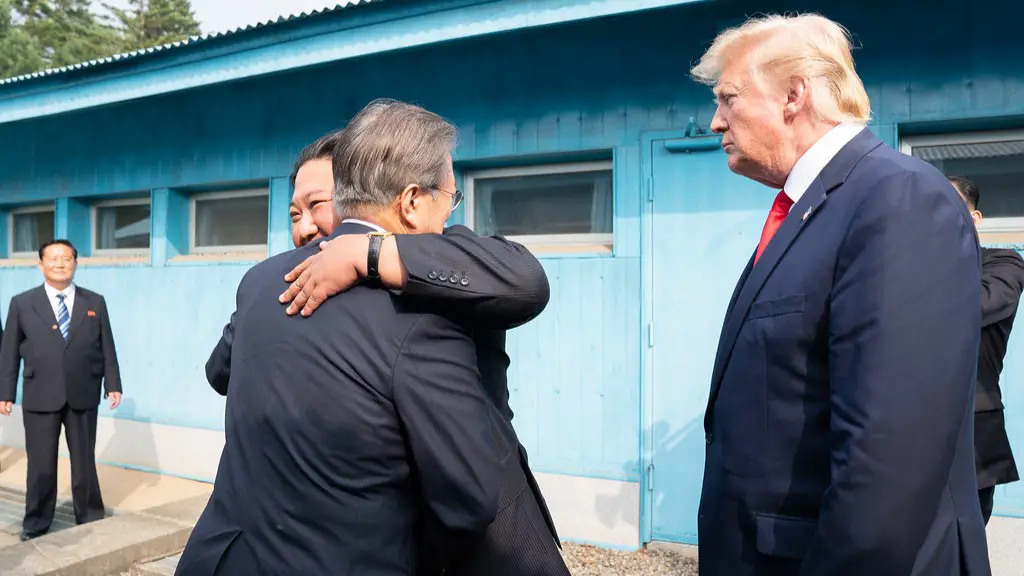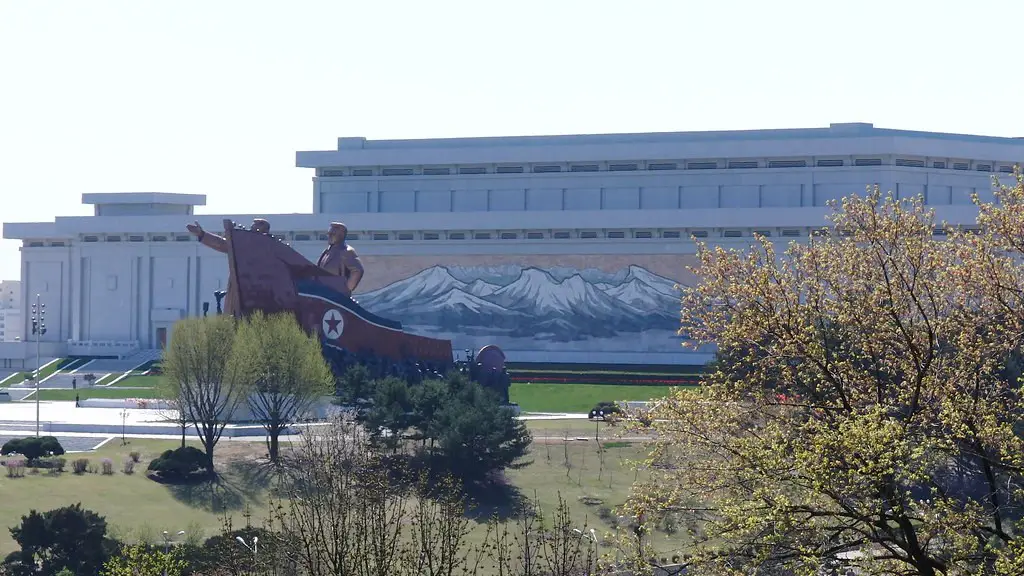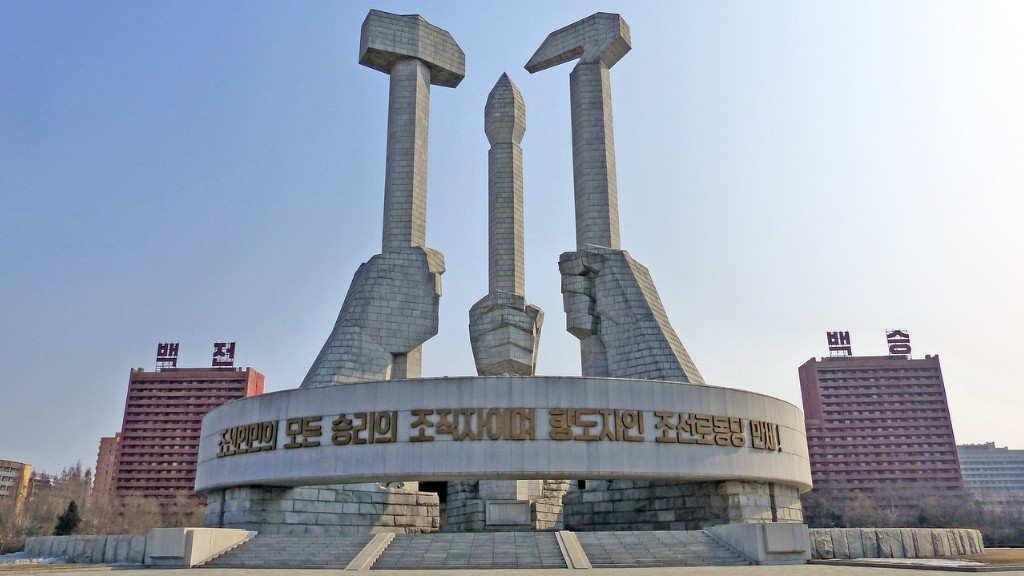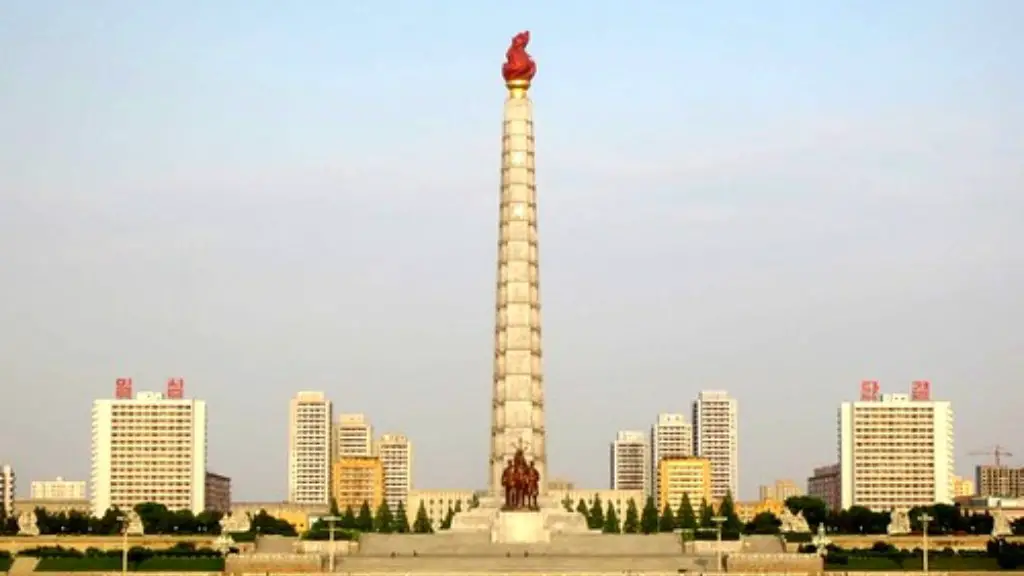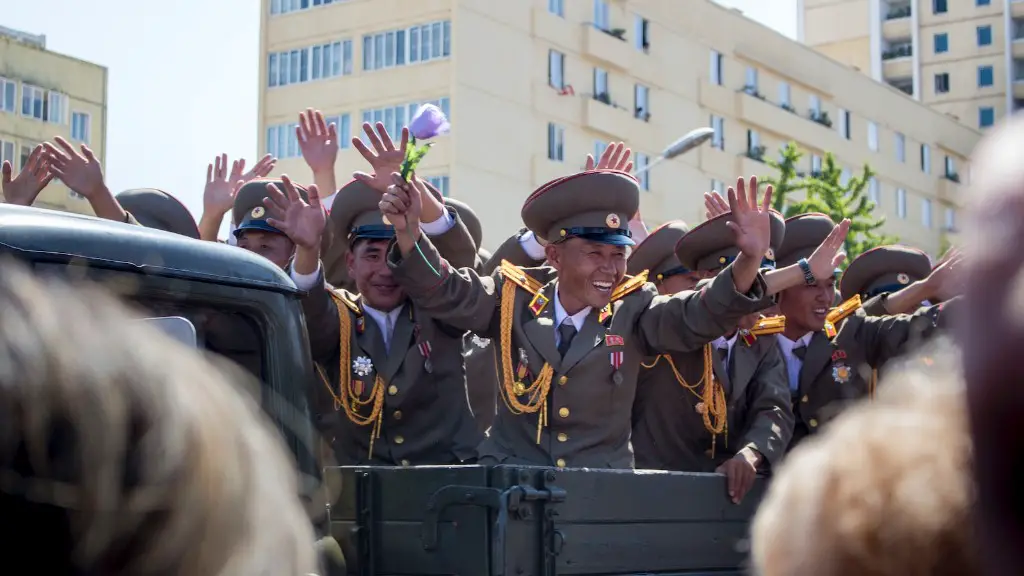It is an often asked question why North Korea and South Korea hate each other so much. The stronger question is whether the animosity between them began before or after 1945, when the Japanese control of Korea ended. In order to answer that question and better understand why North and South Korea hate each other, one needs to look at the complex and multilayered history of the conflict between them.
The root of the conflict between the two Koreas lies in the fact that their split was a result of the Cold War. After World War II ended, Korea became divided between the United States and the Soviet Union. The U.S. and the Soviet Union were in a power struggle and Korea presented an opportunity for one side to gain control over a region. The U.S. and the Soviets agreed to divide Korea into two separate countries. The Soviet Union took control of the north and the U.S. took control of the south.
The division of Korea was not a peaceful one. In 1950, North Korea invaded the South, initiating the Korean War. During the war, both sides suffered greatly, with brutal fighting leaving millions of casualties and considerable destruction in both countries. The war ended with an armistice, but no peace treaty was ever signed, leaving the two Koreas in a state of war. This has created a sense of mistrust between the two nations, as each side is wary of the other’s military ambitions and capabilities.
Since then, the two Koreas have become increasingly isolated from one another, with North Korea in particular isolated from much of the world. This isolation has driven the two countries to develop drastically different political systems, with North Korea opting for a totalitarian government and South Korea becoming a democratic nation. This has led to a much more pronounced divide between the two Koreas, creating a rift in ideology and identity.
Moreover, North Korea’s nuclear ambitions and its numerous human rights violations have contributed to the animosity between them. North Korea’s nuclear weapons program has drawn condemnation from the international community, and South Korea has been at the forefront in leading efforts to stop it. South Korea is also deeply concerned about the safety and human rights of North Korean citizens, particularly in light of reports of widespread human rights abuses by the North Korean government.
Additionally, North Korea’s aggressive rhetoric and refusal to open up talks with South Korea have further reinforced the animosity between the two countries. North Korea’s aggressive behavior has created a sense of insecurity in South Korea, while its rhetoric has deepened the ideological and cultural divide between the two countries.
The animosity between North and South Korea is further exacerbated by the domestic politics in each country. In North Korea, the government often portrays South Korea as a threat and uses anti-South propaganda to rally support for the regime. In South Korea, there is a strong anti-North sentiment, particularly among the conservative politicians who advocate for a tougher stance against the North Korean regime. This has further deepened the rift between the two Koreas.
Role of United Nations
The United Nations (UN) Security Council has adopted a number of resolutions to hold North Korea accountable for its actions and attempt to de-escalate tensions between North and South Korea. The Security Council has also imposed economic sanctions on North Korea as a form of pressure and to limit the country’s ability to acquire nuclear weapons. However, the North Korean government has proven to be highly resistant to change, and the international community has been unable to adequately address the issues in the region.
The UN has attempted to broker talks between North and South Korea on a number of occasions, but these have largely failed due to the lack of trust between the two sides. North Korea has consistently refused to open up talks unless its nuclear weapons program is taken off the table, while South Korea has been unwilling to discuss North Korea’s nuclear program until its human rights situation is addressed.
The UN has also attempted to reduce tensions through cultural and trade initiatives, but these have largely failed due to the lack of openness on the part of the North Korean regime.
The UN has also deployed military forces to the 38th Parallel to maintain the ceasefire between North and South Korea. These forces serve as a buffer between the two sides and have generally been effective in maintaining a peaceful border region. However, there have been incidents in which the North Korean military has violated the ceasefire agreement.
U.S Involvement
The United States has long been involved in trying to resolve the conflict between North and South Korea. The U.S. has played an important role in attempts to broker talks between the two sides and has used economic sanctions as a tool to pressure North Korea to open up dialogue.
The U.S. has also been an important ally for South Korea. It has provided economic and security assistance to the South Korean government and has taken steps to defend it from North Korean aggression. This has helped create a sense of security in the South Korean population.
The U.S. has been critical of North Korea’s human rights abuses and nuclear program, and has sought to pressure the North Korean government to end these practices. It has also been keen to avoid a direct military confrontation with North Korea and has instead opted to use diplomacy and economic sanctions as a way of bringing the North Korean regime to the negotiating table.
U.S. President Donald Trump has taken a more aggressive stance towards North Korea and has sought to ratchet up pressure on the regime, including through additional economic sanctions. However, U.S. policy has largely remained focused on diplomatic solutions as opposed to military action.
China’s Influence
China has been a major player in the Korean conflict. It is North Korea’s closest ally and its most important trading partner, providing the majority of food and other essential supplies to the country. China also provides diplomatic support to North Korea and has long been seen as a buffer between North Korea and the international community.
China has become increasingly critical of North Korea’s nuclear program and human rights abuses, and has called for a peaceful resolution to the conflict. It has backed UN resolutions condemning North Korea and has sought to use its influence to bring the two sides to the negotiating table. However, its influence over North Korea is limited, and it has been unable to persuade the North Korean regime to give up its nuclear ambitions.
China has also sought to maintain a strong economic relationship with South Korea. It is an important trading partner for South Korea and also provides security assistance to the country. This has helped maintain stability in the region.
The Situation In 2021
The current situation between North and South Korea remains tense and uncertain. North Korea remains isolated and has yet to open up dialogue with the South, while South Korea is firmly opposed to North Korea’s nuclear program and human rights violations. The international community has called for a peaceful resolution to the conflict, and the U.S. remains committed to finding a diplomatic solution.
South Korea has engaged in diplomatic efforts with North Korea, sending envoys to the North in an attempt to open up dialogue. However, these efforts have been met with little success thus far. North Korea has so far been unwilling to open up talks unless its nuclear weapons program is taken off the table.
The U.S. and China have also sought to use their diplomatic clout to encourage dialogue between the two sides, but so far this has failed to yield any results. In the meantime, the two Koreas remain locked in a stalemate, with little sign of progress being made in resolving the conflict.
Conclusion
The conflict between North and South Korea is complex and multilayered, with both sides having a long history of animosity and mistrust. The situation is further complicated by domestic political issues, international politics, and the influence of other countries. The international community has sought to resolve the conflict through diplomatic initiatives, but so far these have failed to yield any tangible results.
